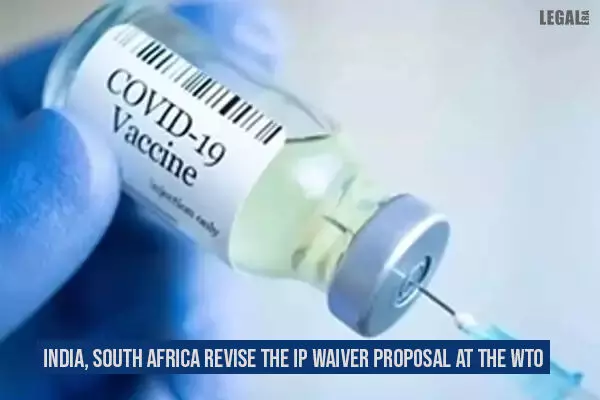- Home
- News
- Articles+
- Aerospace
- Artificial Intelligence
- Agriculture
- Alternate Dispute Resolution
- Arbitration & Mediation
- Banking and Finance
- Bankruptcy
- Book Review
- Bribery & Corruption
- Commercial Litigation
- Competition Law
- Conference Reports
- Consumer Products
- Contract
- Corporate Governance
- Corporate Law
- Covid-19
- Cryptocurrency
- Cybersecurity
- Data Protection
- Defence
- Digital Economy
- E-commerce
- Employment Law
- Energy and Natural Resources
- Entertainment and Sports Law
- Environmental Law
- Environmental, Social, and Governance
- Foreign Direct Investment
- Food and Beverage
- Gaming
- Health Care
- IBC Diaries
- In Focus
- Inclusion & Diversity
- Insurance Law
- Intellectual Property
- International Law
- IP & Tech Era
- Know the Law
- Labour Laws
- Law & Policy and Regulation
- Litigation
- Litigation Funding
- Manufacturing
- Mergers & Acquisitions
- NFTs
- Privacy
- Private Equity
- Project Finance
- Real Estate
- Risk and Compliance
- Student Corner
- Take On Board
- Tax
- Technology Media and Telecom
- Tributes
- Viewpoint
- Zoom In
- Law Firms
- In-House
- Rankings
- E-Magazine
- Legal Era TV
- Events
- Middle East
- Africa
- News
- Articles
- Aerospace
- Artificial Intelligence
- Agriculture
- Alternate Dispute Resolution
- Arbitration & Mediation
- Banking and Finance
- Bankruptcy
- Book Review
- Bribery & Corruption
- Commercial Litigation
- Competition Law
- Conference Reports
- Consumer Products
- Contract
- Corporate Governance
- Corporate Law
- Covid-19
- Cryptocurrency
- Cybersecurity
- Data Protection
- Defence
- Digital Economy
- E-commerce
- Employment Law
- Energy and Natural Resources
- Entertainment and Sports Law
- Environmental Law
- Environmental, Social, and Governance
- Foreign Direct Investment
- Food and Beverage
- Gaming
- Health Care
- IBC Diaries
- In Focus
- Inclusion & Diversity
- Insurance Law
- Intellectual Property
- International Law
- IP & Tech Era
- Know the Law
- Labour Laws
- Law & Policy and Regulation
- Litigation
- Litigation Funding
- Manufacturing
- Mergers & Acquisitions
- NFTs
- Privacy
- Private Equity
- Project Finance
- Real Estate
- Risk and Compliance
- Student Corner
- Take On Board
- Tax
- Technology Media and Telecom
- Tributes
- Viewpoint
- Zoom In
- Law Firms
- In-House
- Rankings
- E-Magazine
- Legal Era TV
- Events
- Middle East
- Africa

India, South Africa revise the IP waiver proposal at the WTO

India, South Africa revise the IP waiver proposal at the WTO The patent waiver proposed by India and South Africa and supported by various other countries has been revised proposing the temporary waiver to be for at least three years. This revision comes amid the uncertainty regarding the effectiveness of the vaccine for children and against new variants and was aimed to narrow down the scope...
To Read the Full Story, Subscribe to Legal Era News
Access Exclusive Legal Era Stories, Editorial Insights, and Expert Opinion.
Already a subscriber? Sign in Now
India, South Africa revise the IP waiver proposal at the WTO
The patent waiver proposed by India and South Africa and supported by various other countries has been revised proposing the temporary waiver to be for at least three years. This revision comes amid the uncertainty regarding the effectiveness of the vaccine for children and against new variants and was aimed to narrow down the scope of the waiver.
The proposal that was submitted earlier by the countries seeks to waive four categories of IPR which are copyright, industrial design, patents, and undisclosed information. Such waiver must be done until the majority of the population has been vaccinated against Covid-19. The revised proposal provides that this waiver must be assessed by the TRIPS council of WTO after three years.
"The revised text also adds a paragraph on the proposed duration. The international community is dealing with a novel pathogen, with many uncertainties. For instance, the investigation is still underway for effective therapeutics, and there are still many unknowns concerning vaccines that will have a bearing on the scale manufacturing and supply that will be needed to control the pandemic such as the duration of immunity conferred, effectiveness of vaccines against new variants, and the effect of vaccines on children. In addition, the duration has to be practical for manufacturing to be feasible and viable. These complexities suggest the need for a practical and flexible duration. Hence it is proposed that the General Council assesses the existence of the exceptional circumstances justifying the waiver after a minimum period to determine the date of termination."


